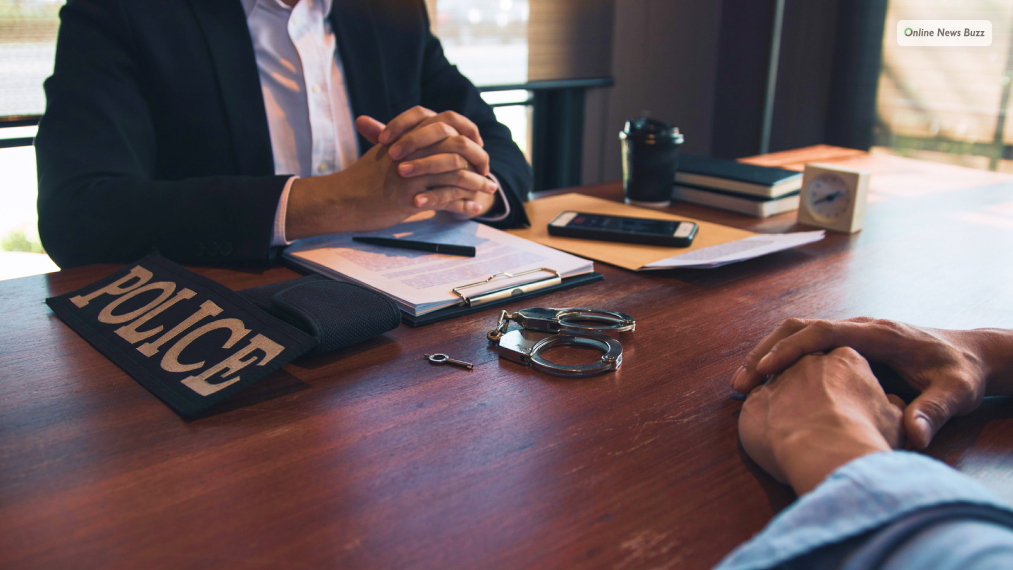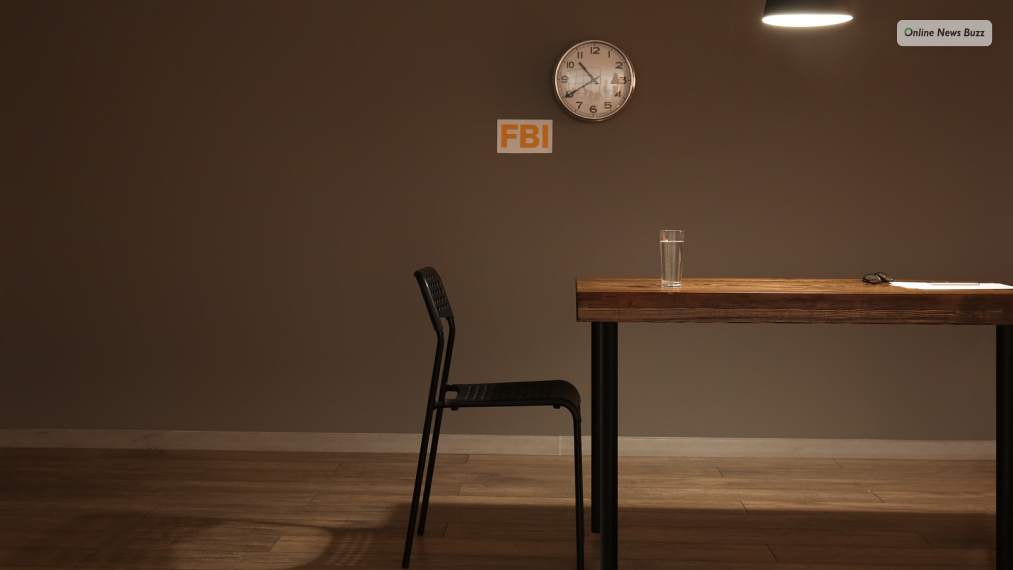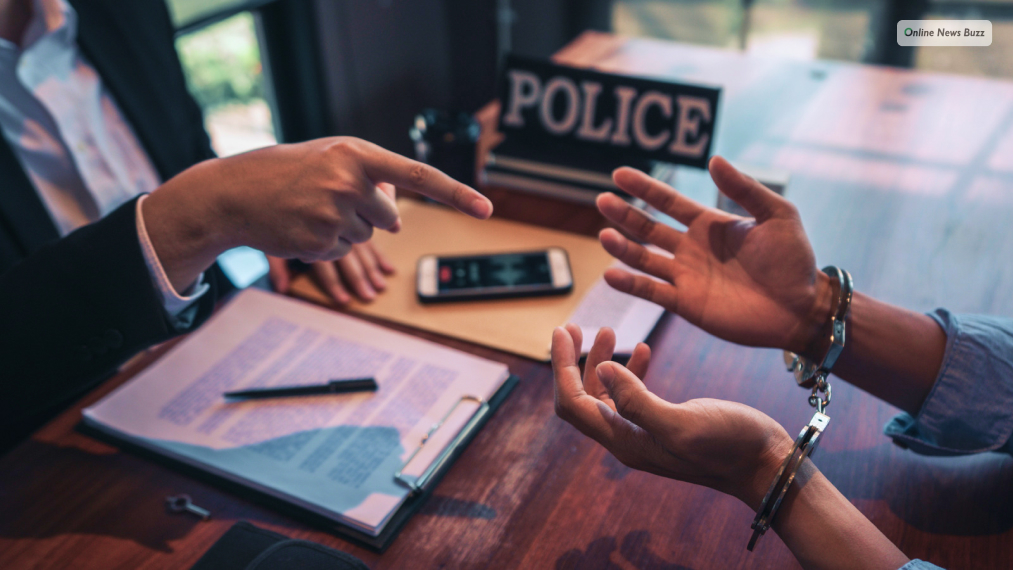
Police interview recordings play a key role in law enforcement investigations. And while it does require some experience and intuition, there are steps you can take to improve your chances of conducting successful interviews with witnesses and suspects.
3 Tips For Better Police Interviews

As police departments and individual law enforcement officers, interviews play a central role in what we do. Fulfilling our duty to the community and serving our citizens is impossible without well-conducted interviews.
Having said that here are a few useful tips you can use to improve your police interview recordings for superior results:
1. Get The Right Interrogation Room Setup

The first step is for your interrogation rooms to be properly optimized. Here are a few thoughts to consider (if they haven’t already been implemented).
You need at least three interrogation rooms in your facility. Anything less than this prevents you from questioning multiple prospects simultaneously.
Interrogation room walls must have top-notch soundproofing. This is especially important for the walls between interrogation rooms. A failure to properly soundproof will hurt the integrity of your police interviews.
Doors should be windowless and solid (flush metal with a solid core). They must also open outward to prevent a suspect from using the door to inflict harm and/or barricade inside.
Ceilings should ideally be gypsum boards to prevent suspects from crawling up into the ceiling and escaping. If you must use a suspended ceiling, tamper-proof tiles are a must. (Not only does this prevent escapes, but it also keeps the suspect from hiding contraband items.)
Vinyl tile flooring or poured epoxy on concrete are good options. This allows for easy cleaning. You may opt for a drain in each room, as well. This allows for easy clean-up with a mop or hose (when necessary).
Be on the lookout for opportunities to improve your interrogation room setup. Focusing on doing your job becomes much easier, when you have the basics in place.
2. Perfect Audio and Video Recording
If you’re still using a low-quality CCTV option to record your interviews, you’re doing yourself, your department, and your community a disservice. You owe it to everyone to invest in a solution with HD video and high-quality audio.
In addition to audio and video quality, consider using a police interview recording system with additional features like marketers (to tag specific points), searchable databases, push-button recordings, etc.
3. Refine Soft Skills
It doesn’t matter if you’re a rookie investigator or you’ve been in law enforcement for 30 years; it always helps to brush up your skills and refine your interviewing skills. Here are a few points to consider:
Let the suspect ramble:
As you know from personal experience, the more you talk, the more opportunities you can say something you don’t mean to reveal the truth about something you’d rather keep a secret.
Letting your suspect ramble is akin to letting them interrogate themselves. Give them plenty of room to “chat it up.”
Offer face-saving scenarios:
One of the best ways to get a suspect to confess is to offer them some sort of face-saving scenario that contains a confession with all of the same elements of the crime being investigated, but that still puts them in a compromising situation.
Then, you can bring them back into alignment with what happened by slowly breaking down walls. This initial confession is the most difficult to obtain. Once you get it, the rest of the truth usually squeezes out.
Research the suspect:
Nothing is stopping you from doing some research on your suspect before your interrogation. Social media can tell you a lot! Gathering a few basic facts will give you leverage in your interview.
Simple little details like this can make a world of difference. And the more you master your soft skills and approach, the more consistent your results will become.
Why Do You Need To Refine Your Interview Skill As An Investigative Police Officer?

So, why should you improve your police interview skills? In this article section, we focus on answering this question for you. In a profession where investigation is a major part of your job, you must have some interview skills.
So, you can find as much information as possible when interviewing victims, criminals, leads, and witnesses. This information will help you understand what occurred and provide justice accordingly.
Additionally, interviews help you find leads and suspects for your case and build a case against it. So, the right person is caught, and the wrong people are not accused of crime.
Furthermore, you can provide justice to the victim when you find the accused of the crime through investigation.
So, your duty as a police officer is to prevent innocent people from getting accused of a crime.
Why Are Police Interviews Important?
Police interviews are critical for investigating crimes that help uphold the justice system. Through investigation interviews, you can find information to help you catch the criminal or get leads about the accused.
Additionally, you can find information that can lead you to find the right suspect in the crime. This helps avoid wrongful prosecution of an innocent person. Furthermore, police investigation interviews help you build a case for prosecutors and uphold the law enforcement and justice system.
Benefits Of Strong Interviewing And Interrogation Skills!
Here’s why how strong interviewing and interrogating skills benefit you when investing in a case:
- Firstly, you can interview quickly and reduce investigating time, which helps you catch the culprit and provide quick justice.
- Secondly, your investigation gets a successful conclusion with rightful justice.
- Thirdly, you can find clues, proof, and witnesses through investigation, which can help you find the right culprit for the crime.
- Fourthly, you can save an innocent person’s life with strong interrogation and interview skills.
- Finally, you can find the conclusion for the crime and build a case for the prosecutor.
Where Can You Improve?
Whether looking at it from a departmental perspective or an individual vantage point, consider where you can improve your police interviews.
With a healthy mixture of advanced technology and strategic soft skills, you can conduct better interviews to serve your community with the utmost authority and integrity. Good luck!
Read Also:




























